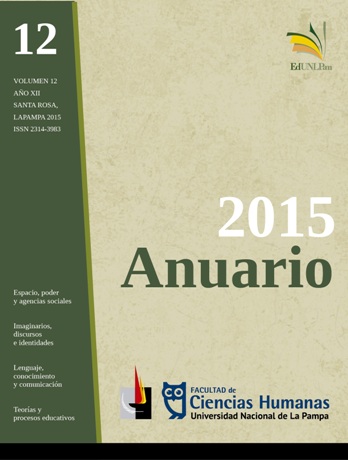Female workers: The Pampa’s schoolteachers in the first half of the twentieth century
Keywords:
gender, world of work, teaching, La Pampa, first half of twentieth century.Abstract
During the inter-war period a series of transformations affected women’s condition. Thus, while the idea of modern woman was becoming rooted in the imaginary of the time, the female participation in the labor market was constantly growing. The strengthening of some female professions was due -to a great extent- to the increase in the intervention of the state sphere; and specifically, it was related with the emergence of public policies in areas so far relegated by the governmental speech: education and social and health assistance. The incorporation of the protection of mothers and children within the state agenda transformed the demands, around the thirties, towards professions consolidated as feminine, especially that of teachers. This work attempts to deepen the examination of the world of female work through the analysis of a profession that massively incorporates women. Apart from making women’s importance visible, sources written by them as educative agents that we found in educational archives (such as institutional historical books, records, visits, the records of parent’s auxiliaries, and other school associations) allow us to enter the complex web of relationships that accompanied and framed the labor development.Downloads
Download data is not yet available.
Downloads
Published
2016-08-18
Issue
Section
Artículos
License
Autorizo la inclusión del artículo de mi autoría adjuntado en el presente envío en la publicación periódica Anuario de la Facultad de Ciencias Humanas. Nueva Época, y conservando los derechos de autoría, cedo y transfiero a la EdUNLPam todos mis derechos protegidos por las leyes de propiedad intelectual que rigen en Argentina, que implican la edición para publicar, imprimir, difundir y vender la obra en cualquier tipo de soportes -ya sean físicos, magnéticos y en redes digitales- en todo el mundo y durante todo el plazo legalmente previsto.
Acepto que no recibiré compensación monetaria alguna, pero a cambio estaré expresamente autorizado para la publicación o reimpresión del artículo en cualquier libro del cual sea autor o editor con la sola obligación de citar el artículo original publicado en Anuario de la Facultad de Ciencias Humanas. Nueva Época.






.png)





